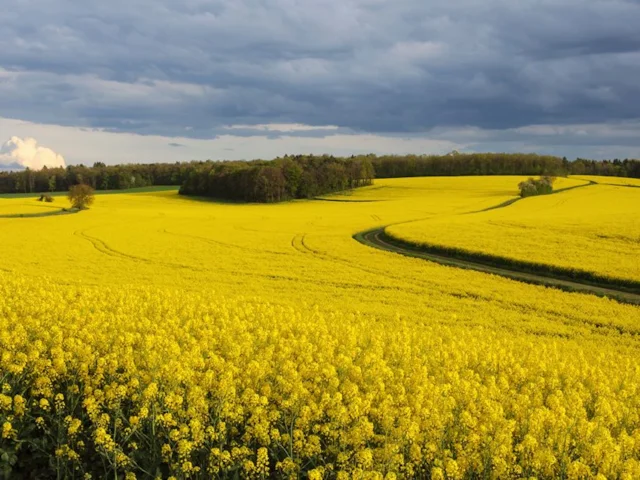Goodbye bad biofuels
cbb45d8a-912b-4985-a499-446c72c83d26

Europe has turned its back on first generation biofuels, after a landmark vote approved a cap on growth for the habitat-consuming crops after 2020.
On 14 April, the Environmental Committee took a vote, agreeing that Europe will no longer support first generation biofuels and will begin to draw up the first elements of its future sustainable transport policy.
The fight has been going on for more than five years, and started with the establishment of targets in the transport sector for renewables and the de-carbonisation of fuels in 2009. This led to a massive investment in classic biofuels, such as rapeseed biodiesel and wheat ethanol, which can be easily blended straight into regular fuel and used at petrol stations without any investment in new equipment.
However, even then concerns were voiced about the sustainability of biofuels: where would the extra land come from? Would it be grown in natural areas? Would these crops take the place of critical food production throughout the world? These issues were not solved at the time the legislation was approved, and so we were left with five years of discussion about the impact of biofuels, land use changes, food prices, food versus fuel, indirect emissions, effects on biodiversity and water use, existing investments and job creation.
The final compromise consists of three key elements. Firstly, a 7-per-cent cap on first generation biofuels, curbing the growth of the land-consuming biofuel crops (which currently provide about 8.6 per cent of the energy used by transport). The European Commission has deliberately scrapped all future transport targets and announced the end of support for 'food-based' biofuels – this means the end of subsidies for first-generation biofuel crops after 2020.
The second element is reporting of indirect emissions – clearly, Europe cannot run a credible climate policy while reporting high indirect emissions year after year. Reporting will stimulate the search for solutions to de-carbonise the transport sector.
Thirdly, it also sends a signal that targets 'advanced biofuels are needed. Some Member States have suggested by-products of existing industries and agriculture or forestry waste as advanced biofuels. A more sustainable system is certainly needed, and policymakers have begun to put in place rules specifying the most important waste materials to be used and how to avoid of competition for agricultural land.
On 14 April, the Environmental Committee took a vote, agreeing that Europe will no longer support first generation biofuels and will begin to draw up the first elements of its future sustainable transport policy.
The fight has been going on for more than five years, and started with the establishment of targets in the transport sector for renewables and the de-carbonisation of fuels in 2009. This led to a massive investment in classic biofuels, such as rapeseed biodiesel and wheat ethanol, which can be easily blended straight into regular fuel and used at petrol stations without any investment in new equipment.
However, even then concerns were voiced about the sustainability of biofuels: where would the extra land come from? Would it be grown in natural areas? Would these crops take the place of critical food production throughout the world? These issues were not solved at the time the legislation was approved, and so we were left with five years of discussion about the impact of biofuels, land use changes, food prices, food versus fuel, indirect emissions, effects on biodiversity and water use, existing investments and job creation.
The final compromise consists of three key elements. Firstly, a 7-per-cent cap on first generation biofuels, curbing the growth of the land-consuming biofuel crops (which currently provide about 8.6 per cent of the energy used by transport). The European Commission has deliberately scrapped all future transport targets and announced the end of support for 'food-based' biofuels – this means the end of subsidies for first-generation biofuel crops after 2020.
The second element is reporting of indirect emissions – clearly, Europe cannot run a credible climate policy while reporting high indirect emissions year after year. Reporting will stimulate the search for solutions to de-carbonise the transport sector.
Thirdly, it also sends a signal that targets 'advanced biofuels are needed. Some Member States have suggested by-products of existing industries and agriculture or forestry waste as advanced biofuels. A more sustainable system is certainly needed, and policymakers have begun to put in place rules specifying the most important waste materials to be used and how to avoid of competition for agricultural land.

